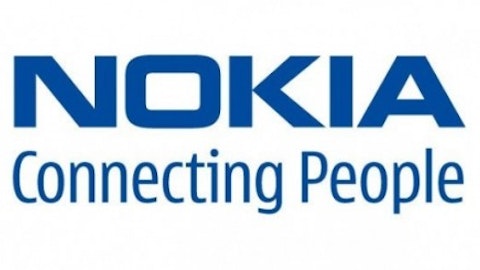
Qualitative earnings discussion
For the fourth quarter, the company reported a 24% year-over-year decline in earnings (adjusted basis). From a cash-flow standpoint, that was a fairly reasonable representation. This is because the company excluded the losses from the previously purchased intangibles, then included the cost of the Microsoft Corporation (NASDAQ:MSFT) Office upgrade offers in both years to make it a fairer representation.
The company on an adjusted basis also reported a 5% year-over-year decline in operating income for the full year. This is well below the 6.2% average growth that I was anticipating for the full fiscal year.
Segment performance
The company reported a 15% decline in Windows OEM (other equipment manufacturer) licenses. The 15% decline in the x86 PC market is likely to persist going into the next quarter. Microsoft Corporation (NASDAQ:MSFT) believes that the segment should see mid-teen year-over-year declines in the next quarter.
The company reported that the servers and tools segment was able to grow by 9% year over year. The growth in revenue was driven by data center and data platforms. Partnership with Oracle Corporation (NYSE:ORCL) is helping to contribute to the company’s growth. Microsoft provided guidance that – in the next quarter – this segment should grow in the high-single digits.
This makes sense because the demand for servers is likely to trend higher despite the shift to virtualization. Downstream suppliers like International Business Machines Corp. (NYSE:IBM) and Oracle Corporation (NYSE:ORCL) are being hit with falling demand for systems and technology. Beneficiaries of virtualization (cloud) will be companies like Microsoft Corporation (NASDAQ:MSFT) and Salesforce.com.
The business revenue was up by 7% year over year in the quarter. The growth in revenue was modest relative to other quarters. This is driven by the transition to Office 365 (subscription based Office suite). Over the short term, the subscription model will not generate any significant revenue growth, but when given enough time, the revenue from this segment should be able to improve. Microsoft Corporation (NASDAQ:MSFT) expects growth from this segment to be modest over the short term (mid-single-digit growth in the next quarter).
The low rates of revenue growth will eventually pick up as the company has offered Office 365 to Mac users. Currently, Office 365 has more than a million subscribers. However, I believe that the total addressable market for Office 365 is substantially larger than this. Eventually, Office 365 will have more of a favorable impact on the company’s consolidated earnings.
Online services (Bing) and entertainment and devices (Xbox One, Windows 8 Mobile) reported 9%, and 8% year-over-year revenue growth, respectively. The growth in these two business segments is likely to be sustained over the long term.
Microsoft Corporation (NASDAQ:MSFT) believes that online services will continue to sustain low-double-digit growth in the next quarter. Entertainment is expected to report a low-single-digit year-over-year decline in the next quarter. The growth in the segment will improve during the holiday shopping season, which will be in two quarters. The growth in entertainment will be driven by the release of Xbox One.
Mixed news for the rest of the industry
It seems that demand for servers is likely to be sustained going into the next quarter. This should have somewhat of a favorable impact on International Business Machines Corp. (NYSE:IBM), which recently reported earnings. IBM is transitioning away from hardware and instead is more actively involved in the selling of hardware and software. The transition is helping to keep International Business Machines Corp. (NYSE:IBM) less exposed to companies like Amazon.com, Inc. (NASDAQ:AMZN), which offers storage as a service.





